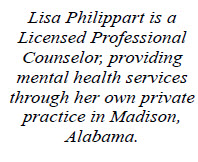 By: Lisa Philippart
By: Lisa Philippart
In my last article we discussed two ideas that could help you get to the root of your problem of chronic procrastination. One idea was to reframe procrastination as a values problem, not a productivity problem. The second idea was to stop using self-criticism as motivation. I said at the beginning that chronic procrastination is often the result of a deeper psychological obstacle. So, it might seem contradictory that my last suggestion for dealing with procrastination is to get out of your head and focus on your environment instead. But your environment is just as big a part of your psychology as your thoughts, beliefs, emotions, or any of the other things we typically associate with the mind. Think about it like this: Do you have a hard time resisting junk food because you are lazy and lack willpower? Or is it difficult because your house is full of unhealthy snacks and everyone else in your home is constantly eating junk food? Another example is: Do you have a hard time getting started writing your first novel because you lack discipline? Or could it be that you keep trying to work on it at the end of the day when you’re exhausted?
 Most procrastinators overestimate the importance of their mental environment and underestimate the importance of their physical and social environment. It’s not all in your head! If you struggle with chronic procrastination, take some time to think deeply about the environment in which you keep procrastinating. What could you remove from your environment that would make it easier to start working and stay focused? Sometimes it is just a matter of adding something to your pre-work routine that would make it easier to get started. Or, there may be people in your life who distract you or pull you away from following through on your commitments. Look for people in your life who help you focus and do good work.
Most procrastinators overestimate the importance of their mental environment and underestimate the importance of their physical and social environment. It’s not all in your head! If you struggle with chronic procrastination, take some time to think deeply about the environment in which you keep procrastinating. What could you remove from your environment that would make it easier to start working and stay focused? Sometimes it is just a matter of adding something to your pre-work routine that would make it easier to get started. Or, there may be people in your life who distract you or pull you away from following through on your commitments. Look for people in your life who help you focus and do good work.
 There may be small ways you could make doing your work easier or more enjoyable. Do you have appropriate lighting? Could you use aromatherapy? Would instrumental music help you focus and/or relax? You may also seek alternative times or places where you could experiment with doing your work. If you think carefully, I can all but guarantee that some relatively simple solutions will present themselves. But that doesn’t mean that those solutions will be easy. Here’s an example: Suppose you realize that you’d probably procrastinate less on your goal of exercising more if you had a small home gym in your garage. It would be simpler and less time consuming to try to get in a workout regularly. However, making enough room in your cluttered garage might require a lot of work, including a difficult conversation with your partner about how much stuff to hang on to!
There may be small ways you could make doing your work easier or more enjoyable. Do you have appropriate lighting? Could you use aromatherapy? Would instrumental music help you focus and/or relax? You may also seek alternative times or places where you could experiment with doing your work. If you think carefully, I can all but guarantee that some relatively simple solutions will present themselves. But that doesn’t mean that those solutions will be easy. Here’s an example: Suppose you realize that you’d probably procrastinate less on your goal of exercising more if you had a small home gym in your garage. It would be simpler and less time consuming to try to get in a workout regularly. However, making enough room in your cluttered garage might require a lot of work, including a difficult conversation with your partner about how much stuff to hang on to!
Your environment matters…a lot. And if you’ve struggled with chronic procrastination for a while, and tried lots of other things without much success, it’s entirely possible that what you really need is a significant change in your surroundings. So, get out of your head, and change your environment instead!
By: Lisa Philippart
Licensed Professional Counselor










 June 20, 2025
June 20, 2025



